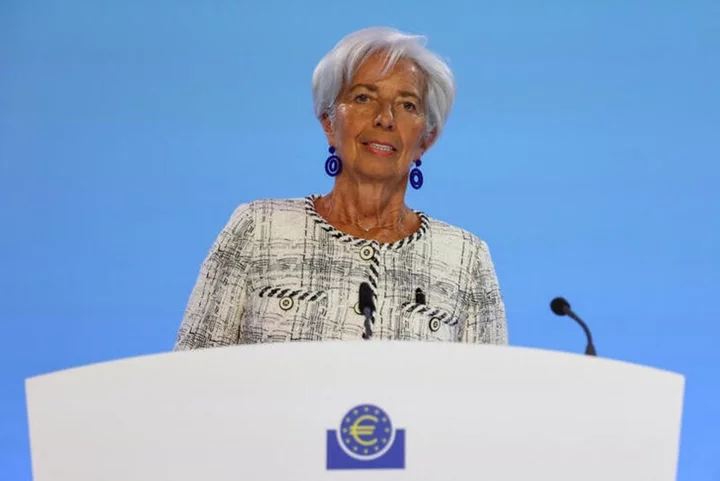By Jan Strupczewski
BRUSSELS The European Central Bank should continue to raise rates to bring down inflation and euro zone governments should slash budget deficits to help it, and to create fiscal breathing space for later, the International Monetary Fund said on Friday.
In a regular review of the economy of the 20 countries sharing the euro, the IMF also said EU governments should quickly agree on a reform, now under discussion, of the bloc's fiscal and debt rules that underpin the value of the euro.
"Monetary policy must continue to tighten to bring inflation to target in a timely manner," the IMF said in the report, which it presented to euro zone finance ministers and the ECB.
The ECB raised borrowing costs to their highest level in 22 years on Thursday and said stubbornly high inflation all but guaranteed another move next month and likely beyond that too.
The quarter-percentage-point move was the ECB's eighth consecutive interest rate hike since it badly misjudged the tenaciousness of price rises early last year, and took its policy rate to 3.5%, a level not seen since 2001.
The IMF urged euro zone governments to help the ECB by cutting spending, because economic growth was to pick up modestly this year and next despite tightening financial conditions.
"Fiscal consolidation should also proceed to ease inflation pressures and rebuild fiscal space," the IMF said.
The European Commission forecast in May that euro zone public finances would improve, with the aggregated budget deficit shrinking to 3.2% of GDP this year from 3.6% last year and falling to 2.4% of GDP in 2024.
Public debt will also continue to decline and the Commission sees it at 90.8% of GDP for the whole euro zone this year, down from 93.1% last year, and falling further to 89.9% in 2024.
The Fund called on EU governments to complete the ongoing reform of the bloc's fiscal rules, which were put in place to prevent excessive borrowing by governments.
The reform will be discussed by EU finance ministers later on Friday, but not much progress is expected because Germany and France remain at odds over whether there should be a minimum annual debt reduction obligatory for all.
"A swift agreement on the reform of the EU economic and fiscal governance framework would support fiscal sustainability over the longer term," the IMF said.
(Reporting by Jan Strupczewski)

